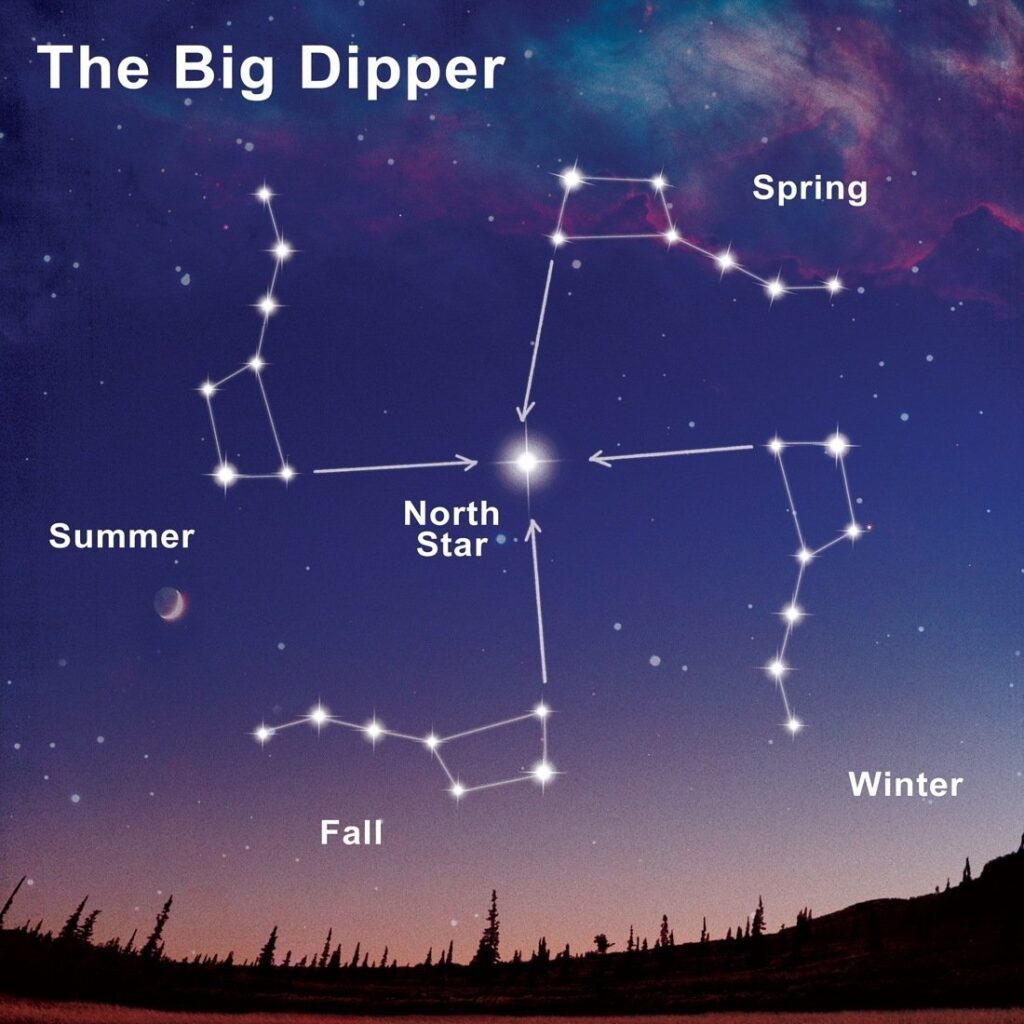What is a moon?
A natural satellite that orbits a planet.
What is Earth's position in the solar system?
Earth is the third planet from the sun.
How many stars are in our solar system?
1
Ben drew this picture of part of the solar system. What are the many scattered dots that he drew between the orbits of Mars and Jupiter most likely to be?
asteroid belt
Name the three types of galaxies.

Which two planets do not have moons in our solar system?
Mercury and Venus
What is a planet?
(Hint: There are 3 criteria)
- It must orbit a star (in our cosmic neighborhood, the Sun).
- It must be big enough to have enough gravity to force it into a spherical shape.
- It must be big enough that its gravity has cleared away any other objects of a similar size near its orbit around the Sun.
What is the name of the star in our solar system?
Sun
Which of these objects is most likely NOT found in our solar system?
A. asteroid
B. planet
C. North Star
D. Halley’s comet
C. North Star

Large distances separate galaxies. As a result, which of the following parts of a galaxy can scientists best observe?
Stars
Which planet has the most moons in our solar system?
Bonus Point: How many moons does this planet have?
Saturn
According to the NASA/JPL Solar System Dynamics team, the current tally of moons orbiting planets in our solar system is 293: One moon for Earth; two for Mars; 95 at Jupiter; 146 at Saturn; 28 at Uranus; 16 at Neptune; and five for dwarf planet Pluto.
Name the Jovian planets.
Jupiter, Saturn, Uranus, Neptune
What are groups of stars that create a recognizable picture called?

constellation
Felice and her dad went out to look at the night sky. Using a telescope, they saw a bright, round object with a cloud-like tail moving across the sky. Which object did they see?
Comet
On a clear night, the Milky Way appears as a hazy, white, cloud-like band in the sky. What is the source of the Milky Way’s light?
Its light comes from billions of stars.
Jaynelle made a two-column chart to compare comets and asteroids. Which of these properties belongs in BOTH columns of her chart?
A. has a long tail
B. orbits the Sun
C. is made of gas, ice, and dust
D. probably caused craters on the Moon
B. orbits the Sun
Describe different characteristics of the inner planets and outer planets.
The inner planets are warmer, smaller, rocky planets that are closer to the sun, while the outer planets are colder, larger gas giants that are further from the sun. The outer planets all have rings.
Nick knows that the Sun is Earth’s closest star. Where would he find Earth’s other nearest stars?
The Milky way Galaxy
What is a solar system?
The solar system consists of at least one star and everything that orbits, or travels around, the star.
Fen and her family went camping and enjoyed looking at the stars. Fen saw that some stars are brighter than others. Which of these affects the brightness of a star as seen from Earth?
A. shape
B. surrounding stars
C. number of planets
D. distance from Earth
D. distance from Earth
How is an asteroid different from a planet?
An asteroid is smaller than a planet.
Most planets do not have liquid water on the surface. Which planet currently has liquid water on the surface?
Earth
Our sun is a medium sized, yellow star, however it appears to be the brightest star in the sky. Why?
Our sun is the closest star to Earth.
What is the largest planet in our solar system?
Bonus: What is the smallest planet in our solar system?
Jupiter
Bonus: Mercury
Astronomers group stars in order to study them. Which group would contain the greatest number of stars?
A. a galaxy
B. a starburst
C. a solar system
D. a constellation
A. a galaxy